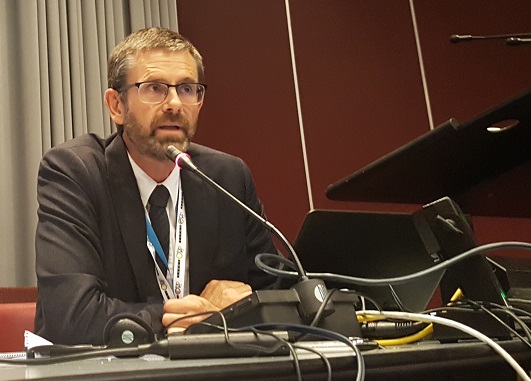Should Codex set standards for alcoholic beverages?
The World Health Organization (WHO) led a side event at the 40th Session of the Codex Alimentarius Commission, to inform the international food safety standard-setting body of the dangers ethanol alcohol poses to human health and allow Members to begin contemplating in what ways Codex could possibly contribute to reducing the harmful consumption of alcoholic beverages.

WHO Senior Technical Officer Dag Rekve
In addition to harming the health of the drinker, alcohol consumption can be damaging to others, explained Dag Rekve, WHO Senior Technical Officer with the Department of Mental Health and Substance Abuse. “Research shows that alcohol has toxic effects on organs and tissues,” he said, reviewing the litany of chronic diseases, injuries, syndromes and even deaths attributable to alcohol.
However, Rekve warned, we, as consumers, are often told of the beneficial effects of alcohol.
“The way the existing Codex standards are applied to alcoholic beverages is not so consistent, it is different in different parts of the world”, said Kazuaki Miyagishima, Director of the WHO Department of Food Safety and Zoonoses, who moderated the side event.
Several developments at national, regional and international levels have raised expectations that Codex would support the reduction of burden of diseases linked to alcohol by standard setting within its mandate to protect consumer health, possibly through the definition of ‘alcoholic beverage’, labelling of alcoholic content and calories or health warnings.
Delegates noted the divergence of labelling and related regulations on alcoholic beverages across the countries. They also pointed out that domestic production and international trade of alcoholic beverages are also a source of livelihoods in many parts of the world.
Delegates noted that the 2010 WHO Global Strategy to Reduce the Harmful Use of Alcohol and the WHO Global Action Plan for the Prevention and Control of Noncommunicable Diseases, adopted by the World Health Assembly, and Target 3.5 of the Sustainable Development Goals call on actions by the international community.
Mia Rowan






